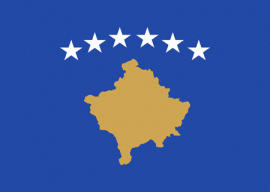
The news media has been full of discussion about whether Kosovo will get to take up a seat at the United Nations, and what its flag looks like, and things like that. These are the kind of things that states do, and Kosovo should do them too.
More interesting to me are the following:
(1) Does it set a precedent? The opposition to the Kosovar move by countries such as Spain and Sri Lanka suggests that it does. They too have secessionist provinces, and they are afraid that the Kosovo example, if it goes well, might be an inspiration to others. On the other hand, every country and every territory is different, so maybe it doesn’t set a precedent. Furthermore, there have been other secessions before, so maybe the precedent is already set. And thirdly, why can’t the people of Kosovo do what they think is best for them? Why must they be forced to do what is best for Spain? And lastly, why should what is best for Spain be rated more highly than what is best for Catalonia? (Please note, I am not suggesting that Catalonia should secede, merely floating the issues.)
(2) What does it do for minorities? Up until last Sunday, the people of Kosovo were a 1.9 million Albanian minority in a country (Serbia) with a population of about 10 million. They were a minority, but are no longer. However, there is a Serbian population in Kosovo which was part of a majority community and now forms a 100,000 strong minority in a country with a population of 2 million. The minority problem is not ended, merely dumped on someone else. Every time a new line is drawn on a map, a new set of minorities is created. Line-drawing is a rather unprofitable activity, all things considered.
(3) What happens next? The only stable solution in the long-term is for both Serbia and Kosovo to become members of the European Union, in the same way that Belgium and the Netherlands are EU member states. OK, either Serbia or Kosovo might choose not to, but each must have the opportunity to make that choice. In discussing whether the secession was the right thing to do, and/or whether the independent Kosovo should be recognised (which amounts to the same question), the judgement is whether it has made the accession of Serbia and Kosovo together easier or harder. I suspect it has made it harder, but I hope I am wrong.
